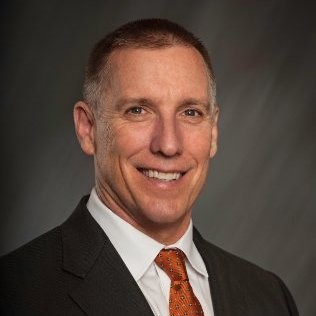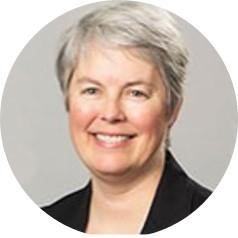Hubbard Radio Washington DC, LLC. All rights reserved. This website is not intended for users located within the European Economic Area.
On Air: Federal News Network

An ecosystem ensures whole health care to veterans
On Demand
During this exclusive webinar, moderator Tom Temin and agency and industry leaders will discuss what opportunities and resources are available for veterans and how employers can better meet the needs of veterans.
Service members mustering out to civilian life often take up careers that build on what they did in the military. Many of those occupations, ranging from truck driving to cybersecurity, come with stresses on physical and mental health. Management of these stressors should therefore form an important cog in the machinery of health care available to veterans.
In fact, there’s a task force for that. Task Force Movement helps transitioning military members obtain quality career jobs, with a concentration on trucking. A group of industry, veterans service organization and government representatives established the Task Force in 2022, in response to the Biden administration’s Trucking Action Plan. The plan itself came in response to trucking and supply chain disruptions from the pandemic, including a shortage of drivers.
Sitting in on the discussions concerning veterans as commercial truck drivers, “we really knew that there was more to talk about,” said Liz Belcaster, president of EMB Consultants and a member of the Task Force. Speaking on a special Federal News Network panel, Belcaster credited former Army Undersecretary Patrick Murphy with “taking on the charge of creating Task Force Movement, and continuing to talking to employers and stakeholders in the trucking industry about how we can engage more service members to participate.”
She said that today, the Task Force Movement “is really the hub of bringing industry stakeholders and those that are responsible for the transition of service members.” The Task Force has expanded to include the cybersecurity industry. Task Force Movement for Cybersecurity formed in response to the White House Executive Order on cybersecurity.
The idea of ensuring, individualized, total person health for veterans – an idea going back many years – starts before service members leave the military. In fact, said Jennifer Perez, the national director of Post-9/11 Transition and Case Management at the Veterans Health Administration, VA and the armed services work closely on transitions.
Perez said, “VA has embedded social workers and nurses about 50 military treatment facilities to be there to provide that individualized care coordination.” By identifying issues while a person is still service, VA officials believe they can better provide for that veteran long term.
“We fully recognize in VA that we will treat veterans for the rest of their lives,” Perez said.
Job-health connection
A definite nexus exists for jobs and health care, panelists agreed.
“The operative word is ecosystem,” said Elizabeth Martin, senior vice president for the Enterprise Integration and Innovation Group at Optum Serve. “It’s transitioning military service members, veterans, their families, the entire ecosystem, and industry, jobs, and skills. It’s all linked together by health care, how we show up every day, how we live a vital life.”
Martin said that when Optum Serve learned of Task Force Movement, “we decided to reach out to Task Force Movement from a whole health perspective, knowing that one-size-fits-all and healthcare does not work.”
She added, “Veterans have particular healthcare needs. So do particular industries, whether it be trucking, cybersecurity or aviation.” The challenge becomes weaving the idea of whole health care into the jobs and transitions programs the government offers.
Martin put it this way: “How do we pair our expertise, our partnerships with [government], and deliver a whole health system of care for … the lifecycle of the veteran?” She said whole health care must extend “from the moment they transition all the way to end of life [with] healthy, family-sustaining jobs.” Health care organizations, Martin said, must “look ahead and understand what prevention could make sure these risks are mitigated depending on which industry they choose to go into.”
The ecosystem involves multiple agencies. Gary Simpson is the Navy’s wounded warrior transition coordinator. His group counsels service members about to transition out. By definition, those he works with have medical conditions to begin with. When discussing career possibilities with the service member, Simpson said, “I take a one-on-one approach with that service member. We sit down and we dissect it, knowing their medical condition and talking in real speak with them. Can you actually do this?”
Simpson said the whole health approach is important because it overlays the specifics of a given medical condition, such as the need for medications at a certain time each day, with the demands of a given job.
Beyond medicine
The Labor Department is another member of the employment and health ecosystem. It also operates a unit concentrating on veterans employment. It maintains a veterans’ version of the My Next Move, an online research site that gives information about jobs in various industries, and their pay and growth prospects.
“We think employment is so critical to the wellbeing of transitioning service members and veterans,” said Mark Toal, director of the Office of Strategic Outreach for DOL’s Veterans Employment and Training Service. It leads to what he called the protective factor for the social determinants of health.
Whole health implies more than medications and specific medical conditions. It extends to a veteran’s total experience. Perez said that the VA liaisons embedded in DoD take a case management approach.
“We’re talking about, what are your health care needs,” Perez said. “But also what are your social needs? What do you need in housing? Is there housing insecurity? Do you have food insecurity?” For someone managing with post-traumatic stress disorder, what circumstances aggravate it; for example, stresses of long distance truck deliveries or witnessing something that might trigger a difficult memory.
In managing some 38,000 cases a year, Perez said, “VA does not to this alone. We have public and private partners. We also work with the community, our local military and VA teams, faith-based organizations.”
The health threats to jobs vary as widely as the jobs themselves. For truck driving, Martin named metabolic syndrome, obesity, smoking, depression from time away from home, and relationship instability. Truck drivers even had instance of covid infections higher than average because of long distance movement and exposure in multiple locations.
For a career like cybersecurity, she said, “These are high stress environments. Substance abuse may be an uptick behavioral health issues may be a challenge. That impacts our cardiovascular health.” Martin added, “All of these can be mitigated with appropriate focus.”
Toal of the Labor Department added, “Blue collar, white collar, even calling cybersecurity new collar, every occupation, no matter what kind of income you have, has inherent occupational risk.”
He said the risks of not working outweigh the risks from occupational hazards. Toal – himself a disabled veteran – pointed out that veterans, despite whatever health issues they have – also out-earn the general population and have a lower unemployment rate than the average.
Toal cautioned against what he called the broken veteran narrative.
“It is a good business decision to hire a veteran,” he said. “And those veterans that step forward to serve our nation are prepared to thrive and excel.”
Learning objectives:
- Task Force Movement overview
- Tracking health concerns across professions
- Data sources and metrics
Complimentary Registration
Please register using the form on this page or call (202) 895-5023.
By providing your contact information to us, you agree: (i) to receive promotional and/or news alerts via email from Federal News Network and our third party partners, (ii) that we may share your information with our third party partners who provide products and services that may be of interest to you and (iii) that you are not located within the European Economic Area.
Please register using the form on this page.
Have questions or need help? Visit our Q&A page for answers to common questions or to reach a member of our team.
Speakers
Jennifer Perez
National Director, Post 9-11 Transition and Case Management
Veterans Health Administration

Liz Belcaster
President
EMB Consultants

Mark Toal
Director, Office of Strategic Outreach, Beterans' Employment and Training Service
Labor Department

Gary Simpson
Navy Wounded Warrior Transition Care and Employment Coordinator, Naval District Washington
Walter Reed

Elizabeth Martin
Senior Vice President, Innovation, Optum Serve
Optum Serve

Tom Temin
Host, Federal Drive
Federal News Network
By providing your contact information to us, you agree: (i) to receive promotional and/or news alerts via email from Federal News Network and our third party partners, (ii) that we may share your information with our third party partners who provide products and services that may be of interest to you and (iii) that you are not located within the European Economic Area.

